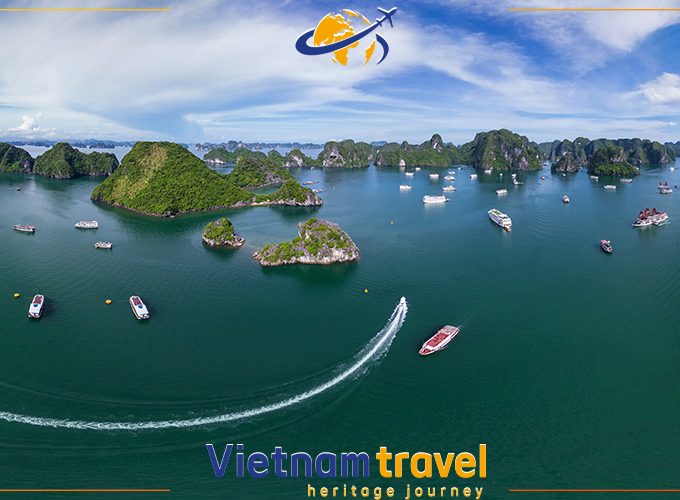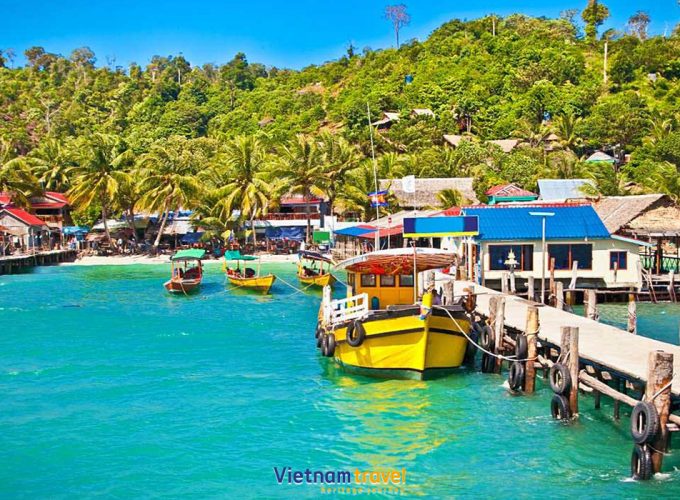Visa Exemption
-
- From the 1st of October 2022 to the 31st of March 2023, the period of stay for visa-on-arrival is extended to 30 days.
- From the 1st of October 2022 onwards, the period of stay for the tourist visa exemption scheme is 30 days.
This rule allows tourists from 64 countries to enter Thailand without a visa. They are granted a maximum of 30 days if they enter Thailand via an international airport or a land border checkpoint from neighboring countries.
-
- Argentina, Australia, Austria, Bahrain, Belgium, Brazil, Brunei, Canada, Chile, Czech Republic, Denmark, Estonia, Finland, France, Germany, Greece, Hong Kong, Hungary, Iceland, Indonesia, Ireland, Israel, Italy, Japan, Korea, Kuwait, Laos, Liechtenstein, Luxembourg, Macau, Malaysia, Monaco, Mongolia, Netherlands, New Zealand, Norway, Oman, Peru, Philippines, Poland, Portugal, Qatar, Russia, Singapore, Slovak Republic, Slovenia, South Africa, Spain, Sweden, Switzerland, Turkey, United Arab Emirates, United Kingdom, United States, Vietnam.
The passport holders of 64 countries are entitled to enter Thailand under this rule provided that they meet the following criteria:
-
- The visit is strictly for tourism purposes.
- They must have a confirmed return ticket to show they are flying out of Thailand within 30 days of entry, as appropriate. Open tickets do not qualify. Traveling overland out of Thailand by train, bus, etc., to Cambodia, Laos, Malaysia (including en route to Singapore), Myanmar, etc., may be accepted as proof of exiting Thailand. They may be asked to show flight tickets upon entering Thailand. If they do not possess a flight ticket to offer, they will be leaving Thailand within 30 days of entry their entry will most likely be rejected.
E-Visa
Thailand e-Visa is a tourist visa for travelers from certain countries. This e-Visa is only valid for travel, leisure, or medical needs. Foreigners with e-Visas cannot work, pursue long-term education, or volunteer. All countries are eligible for Thailand’s e-Visa. However, citizens from particular countries may need additional documents and seek further confirmation from their regional Thai Embassy or Consulate:
-
- Afghanistan, Algeria, Bangladesh, Cameroon, the Central African Republic, the People’s Republic of China, the Democratic Republic of the Congo, Egypt, Equatorial Guinea, Ghana, Guinea, India, Iraq, Iran, North Korea, Lebanon, Liberia, Libya, Nepal, Nigeria, Pakistan, Palestine, Sao Tome, and Principe, Sierra Leone, Somalia, Sri Lanka, Sudan, Syria, and Yemen.
Requirement:
Below are the requirements needed to prepare for a Thailand e-Visa application:
-
- For single-entry: A current passport with no less than six months validity and at least two blank pages. (single entry). Applicants must complete online visa applications with their given name(s) and surname matching their passports.
- For multiple-entry: A passport with no less than six months validity beyond the date of departure from Thailand and at least two blank pages. Applicants must complete online visa applications with their given name(s) and surname matching their passports.
- A passport-style photo that can be uploaded
- Intended date of travel
- Proof of accommodation in Thailand, e.g., hotel booking, invitation letter from family or friend in Thailand
- For single-entry: Financial evidence – Bank statement or proof of earnings (equivalent to 10,000 Thai Baht for individuals or 20,000 Thai Baht for families.)
- For multiple-entry: Financial evidence showing a balance of 200,000 Thai Baht (approx. £5000, USD$5,5000, Aud$8000). This is to prove financial stability over six months. e.g., bank statements, proof of earnings, sponsorship letter from employer.
Validity
A Single entry e-Visa allows foreign nationals to enter Thailand for tourism, leisure, or medical reasons. Travelers will have three months before their visa application is approved to enter Thailand. They are permitted to stay for 60 days once they arrive.
The multiple-entry e-Visa is valid for up to 60 days per visit and allows foreign nationals unlimited entry to Thailand over six months. This stay can also be extended by 30 days by visiting a local Immigration Office.
E-Visa extension
Traveler with a multi-entry e-Visa can extend their time in the country by 30 days.
Visa extension for students
According to the recent announcement by the Immigration Bureau of Thailand, foreigners with student visas must provide certificates from educational institutions when they apply for a visa extension. This is done as a part of the department program, which aims to prevent the establishment of illegal businesses run by foreigners.
Visa On Arrival
At present, passport holders from the 19 eligible countries and territories may apply for visas at the immigration checkpoints on arrival for tourism. They will be granted to stay in Thailand for a period that doesn’t exceed 30 days. The Visa on Arrival can only be extended up to 7 days at the Thai Immigration office. Should the traveler wish to stay for a month longer, they may do a border run once. For each entry, they will get 30 days, or exit the country by land and re-enter by air to get another 30-day stamp.
List of countries whose nationals may apply for a visa at the Immigration Checkpoints for the touristic purpose only and a period that doesn’t exceed 15 days:
-
- Bulgaria; Bhutan; China; Cyprus; Ethiopia; Fiji; Georgia; India; Kazakhstan; Malta; Mauritius; Mexico; Nauru; Papua New Guinea; Romania; Saudi Arabia; Taiwan; Uzbekistan; Vanuatu
The Visa On Arrival allows passport holders of 19 countries to enter Thailand under this rule provided they meet these requirements:- The visit is strictly for tourism purposes.
-
- The passport must be genuine and valid for at least 30 days.
- The traveler must have a valid address in Thailand, whether a hotel or apartment, that can be verified.
- The traveler must have a confirmed return ticket to show that they fly out of Thailand within 15 days of entry, as appropriate. Open tickets do not qualify. Traveling overland out of Thailand by train, bus, etc., to Cambodia, Laos, Malaysia (including en route to Singapore), Myanmar, etc., is not accepted as proof of exiting Thailand. The traveler may be asked to show a flight ticket upon entering Thailand. If The traveler does not possess a flight ticket to show that The traveler will be exiting Thailand within 15 days of entry, The traveler will most likely be refused entry.
- It will also be necessary to prove that The traveler has funds of at least 10,000 THB per person and 20,000 THB per family during the stay in Thailand.
- A fee of 2,000 THB is payable upon entry and is subject to change without notice. It must be paid in cash and Thai currency only.
Required documents
-
- Passport cover page
- Passport bio page
- Departure and return airline tickets
- Proof of accommodation
- Photograph size 4×6 cm.
Tourist Visa For Other Countries
Nationals of certain countries are required to apply for a visa only at the Thai Embassy or Consulate-General in their home/ residence country or at the designated Thai Embassy. Therefore, travelers are advised to contact the nearest Thai Embassy or Consulate-General to find out where they may apply for a visa to Thailand before departure.
In case of overstay: There is a minimum charge of 500 Baht daily. This goes to a maximum of 20,000 Baht for overstays of 40 days or longer.
In addition, there is a risk of being detained, fined, deported ait’s own expense, and black-listed from re-entering Thailand.
The only legal way of getting a new visa, entry permit, or extension of stay is from a Thai Embassy or Consulate, an Immigration Officer at a point of entry into Thailand, or one of the Immigration Offices around the country. Visas issued by visa shops, travel agents, or other means are likely illegal and can lead to criminal proceedings.
Illegal Souvenirs
Buddha images or statues over 12 cm or 5 inches are at risk of being confiscated upon departure; that’s why the following guidelines must be followed:
– The Buddha image must be an entire image, not just a part like a hand or a head
– One cannot take more than 5 Buddha images out of Thailand on a single trip
– If applying for an export permit, the permit should be planned 4 to 5 days before the process; apply at the local Fine Arts Department and submit one permit for every image
The following is an extract from the Thailand Ministry of Foreign Affairs for the export of images of Buddha:
Buddha images, Bodhisattva images, or related fragments, part of ancient monuments and prehistoric objects, are forbidden to be taken from the Kingdom. Newly cast images of Buddha in complete condition can be exported for worship, cultural exchange, or educational purposes with licenses issued by the Fine Arts Department. No more than five pieces per person shall be allowed.
Reproductions of antiquities can also be exported with licenses.
Procedures to obtain a license for the export of antiquities or Buddha images.
The following documents should be produced together with the application form:
-
- Two copies (3×5 inches) of a front view photograph of the object(s)
- A photocopy of the applicant’s passport (in case of export of Buddha images,
- The photocopy of the passport must be certified as a true copy by the related Embassy or Consulate in Thailand).
Bring the object(s) and the documents to apply for a license at any of the following places:
Office of Fine Arts Department Locations
Office of Archaeology and National Museums, 81/1 Si Ayutthaya Road, Thieves, Dusit, Bangkok, Tel: 0 2628 5032
Chiang Mai National Museum, Superhighway Road, Amphoe Muang, Chiang Mai, Tel: (053) 221-308
Songkhla National Museum, 13/1 Jana Road, Tambon Bohyang, Amphoe Muang, Songkhla, Tel: (074) 311-728, 311-881
Thalang National Museum, Tambon Si Sunthorn, Amphoe Thalang, Phuket, Tel: (076) 311-426

















